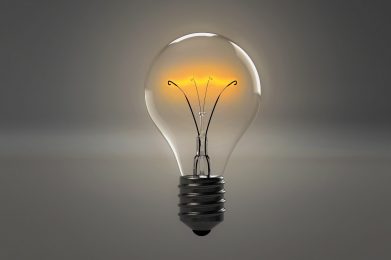Intent
At Huncote Primary School, we recognise the importance of Science in every aspect of daily life. As one of the core subjects taught in Primary Schools, we give the teaching and learning of Science the prominence it requires.
The Scientific area of learning is concerned with increasing pupils’ knowledge and understanding of our world, and with developing skills associated with Science as a process of enquiry. It will develop the natural curiosity of the child, encourage respect for living organisms and the physical environment and provide opportunities for critical evaluation of evidence.
At Huncote Primary School, in conjunction with the aims of the National Curriculum, our Science teaching offers opportunities for children to:
- develop scientific knowledge and conceptual understanding through the specific disciplines of Biology, Chemistry and Physics;
- develop understanding of the nature, processes and methods of Science through different types of science enquiries that help them to answer scientific questions about the world around them;
- be equipped with the scientific knowledge required to understand the uses and implications of Science, today and for the future.
- develop the essential scientific enquiry skills to deepen their scientific knowledge.
- use a range of methods to communicate their scientific information and present it in a systematic, scientific manner, including Computing, diagrams, graphs and charts.
- develop a respect for the materials and equipment they handle with regard to their own, and other children’s safety.
- develop an enthusiasm and enjoyment of scientific learning and discovery.
The National Curriculum will provide a structure and skill development for the science curriculum being taught throughout the school, which is now linked, where possible to the theme topics to provide a creative scheme of work, which reflects a balanced programme of study.
At Huncote Primary School:
Children have weekly lessons (or a blocked equivalent) in Science throughout Key Stage 1 and 2, using various programmes of study and resources. In Early years, science is taught through the children learning about the world around them in their learning through play. Additional opportunities are provided in Science, such as learning about famous scientists, judging the Royal Society’s book prize, participating in the Don Hanson Charitable Schools Program and educational visits linked to the science curriculum, such as visits to Croft Quarry, our local environment, Twycross Zoo, a farm and the National Space Centre.
We endeavour to ensure that the Science curriculum we provide will give children the confidence and motivation to continue to further develop their skills into the next stage of their education and life experiences.
Implementation
Teachers create a positive attitude to science learning within their classrooms and reinforce an expectation that all pupils are capable of achieving high standards in science. Our whole school approach to the teaching and learning of science involves the following;
- Science will be taught in planned and arranged topic blocks by the class teacher. This is a strategy to enable the achievement of a greater depth of knowledge.
- Through our planning, we involve problem solving opportunities that allow children to find out for themselves. Children are encouraged to ask their own questions and be given opportunities to use their scientific skills and research to discover the answers. This curiosity is celebrated within the classroom. Planning involves teachers creating engaging lessons, often involving high-quality resources to aid understanding of conceptual knowledge. Teachers use precise questioning in class to test conceptual knowledge and skills, and assess children regularly to identify those children with gaps in learning, so that all children keep up.
- We build upon the learning and skill development of the previous years. As the children’s knowledge and understanding increases, and they become more proficient in selecting, using scientific equipment, collating and interpreting results, they become increasingly confident in their growing ability to come to conclusions based on real evidence.
- Working Scientifically skills are embedded into lessons to ensure these skills are being developed throughout the children’s school career and new vocabulary and challenging concepts are introduced through direct teaching. This is developed through the years, in-keeping with the topics.
- Teachers demonstrate how to use scientific equipment, and the various Working Scientifically skills in order to embed scientific understanding. Teachers find opportunities to develop children’s understanding of their surroundings by accessing outdoor learning and workshops with experts.
Impact
- Children will have received a fun, engaging, high-quality science education, that provides them with the foundations for understanding the world.
- Our engagement with the local environment ensures that children learn through varied and first-hand experiences of the world around them. So much of science lends itself to outdoor learning and so we provide children with opportunities to experience this.
- Through various workshops, trips and interactions with experts and local charities, children have the understanding that science has changed our lives and that it is vital to the world’s future prosperity.
- Children learn the possibilities for careers in science because of our community links and connection with national agencies such as the Royal Society and the STEM association.
- Pupil voice is used to further develop the Science curriculum, through questioning of pupil’s views and attitudes to Science to support the children’s enjoyment of science and to motivate learners.
Science Progression and Vocabulary



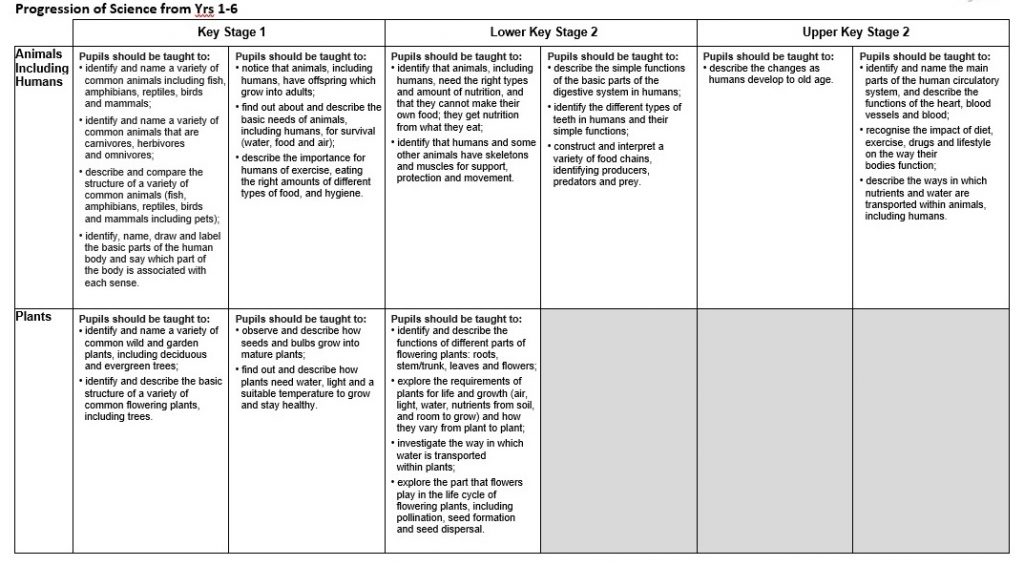
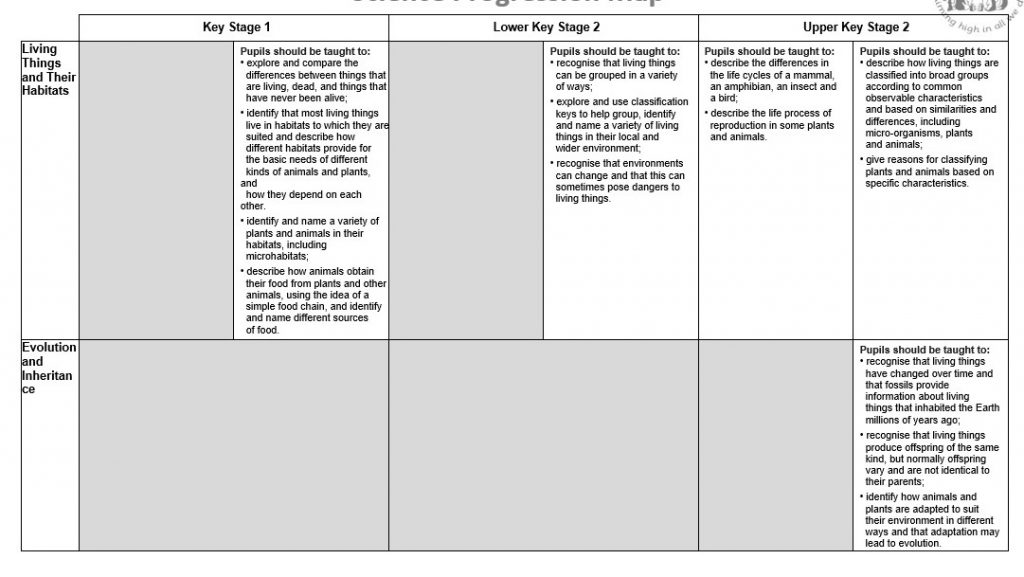

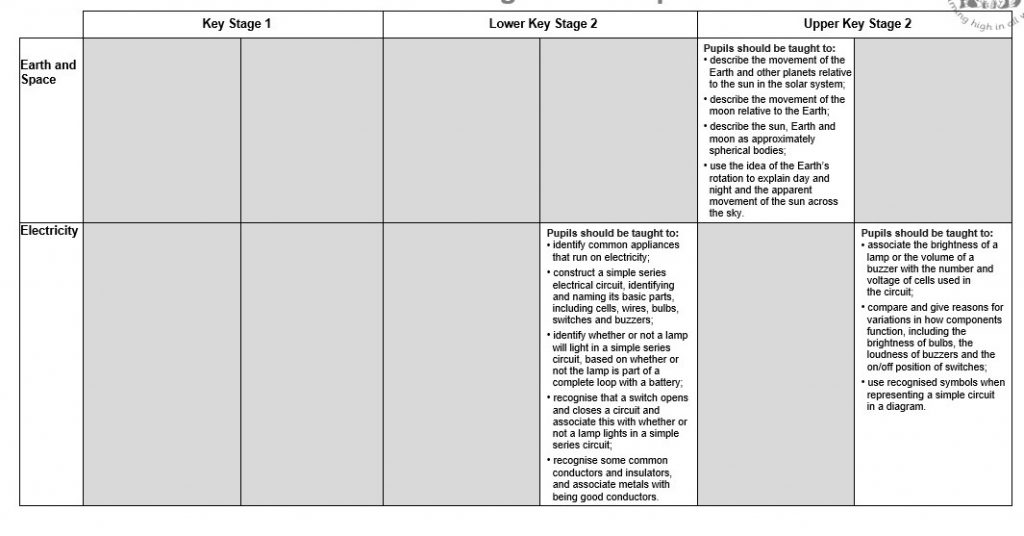
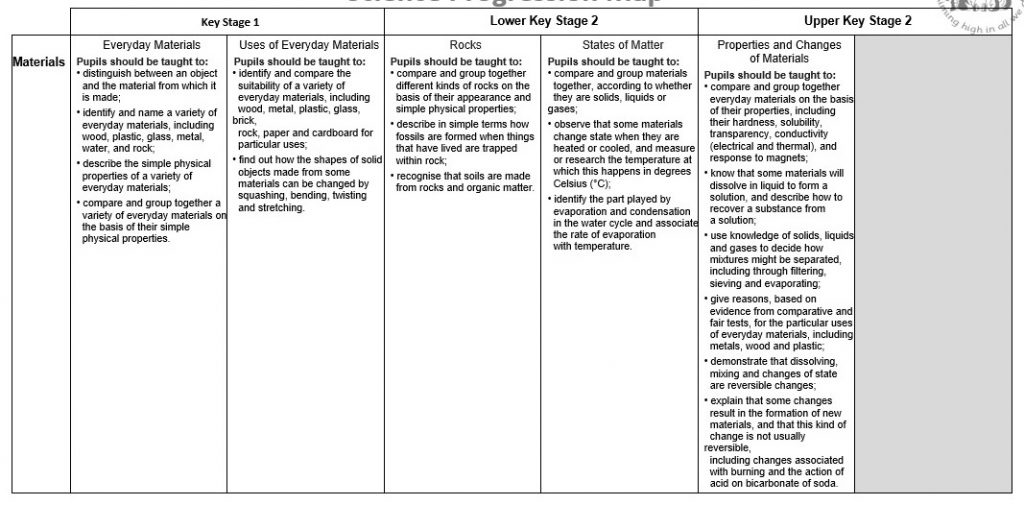
Assessment
Assessment in Science is ongoing and based on individual lessons and units. A feedback sheet is completed at the end of a lesson or unit and these are used to assess progress against the National Curriculum objectives.
